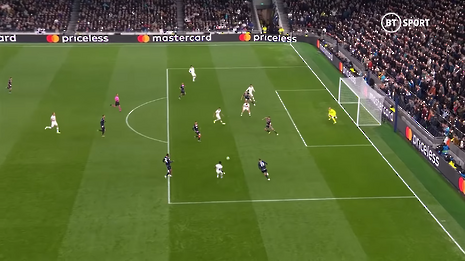Football is in crisis – but not in the way some may have us think
The recurrent narrative of football clubs in ‘crisis’ obscures the real structural issues plaguing the sport, argues Posy Putnam

Much like the Cambridge student who always claims to be so far behind and yet completes all their supervision work to an impeccable standard, football pundits love a crisis. It doesn’t matter whether it’s real or not, if it’s just one bad week or not, pundits are drawn to them like an overworked rower is to Huel.
Take the example of Tottenham. Last May, they reached the Champions League final for the first time in their history. However, with an admittedly less-than-ideal start to the season, including only three wins from their first ten games, Tottenham are now treated as if they are on the brink. Never mind the quality of the team itself and the shrewd managerial style of Pochettino; focus on that embarrassing loss to League Two Colchester, Bayern Munich’s 7-2 victory and Brighton’s 3-0 rout.
However, at the time of writing with ten league games played, Tottenham are only one point behind Manchester United. Their progression to the next stage of the Champions League is not yet compromised, and a place in Europe next season is still looking reasonably achievable.
“Talking up a ‘crisis’ is a sure-fire way to generate clicks and views”
So, why the need to paint a crisis? Put simply, it makes a great talking point. Football’s success comes from the entertainment it provides, and such entertainment need not be restricted to the pitch. Talking up a ‘crisis’ is a sure-fire way to generate clicks and views.
Arsenal Fan TV knows this well. The channel has over one million subscribers and consists largely of fan reactions and post-match analysis of Arsenal matches. However, most of these views come not from happy fans expressing their joy at the play, but instead frustrated rants lamenting the team. Indeed, while a video discussing Arsenal’s recent loss to Sheffield United has close to 800,000 views, the most popular reaction video to the match just before – a 1-0 victory over Bournemouth – has only 330,000 views.
There is certainly an element of schadenfreude to the phenomenon. As a football fan, you do love seeing your team win – but you also love seeing your rivals lose. Football fans now have more ways to communicate than ever. Once any hint of ‘crisis’ has spread to social media and the tweets begin pouring in, the topic trends and, all of a sudden – the ‘crisis’ is real!
While fans may deplore the managerial merry-go-round and the emphasis on short-term success over long-term projects, nothing encourages a sacking more than a string of poor results morphing into an avalanche of tweets and news articles declaring: “FOOTBALL TEAM IN CRISIS!” Matches become monumental hurdles, ‘must-wins’ and managers become interrogated prisoners of the media’s own making.
But this focus on clubs in ‘crisis’ has a more insidious effect. Crises become tied to clubs or individual managers, removed from the sport as a whole. This narrative leaves no space for more structural crises, such as racism in football. Fans feel removed – the crisis is limited to one area – rather than complicit themselves. They and the media do not need to examine their own actions, words and behaviour; instead, they can criticise someone else’s.
Even with the recent abandoning of the Haringey Borough versus Yeovil Town FA Cup qualifier due to racist abuse, the reporting surrounding the event has largely focused on one match. This incident of despicable behaviour is not linked to Bradford City’s own investigation into racist chants, or the racist banner on display during Liverpool’s most recent Champions League match.
“By treating these incidents as isolated ... football as a whole remains complicit”
These narratives become about more than just a media spin, a way of monetising and encouraging our love for sporting drama – rather, they obscure the real crises in football. It’s easy to whip up a quick, click-bait-y article about Tottenham’s woes but less so an interrogation of racial abuse and discrimination in footballing culture.
The FA may condemn all instances of racism, but by treating these incidents as isolated, the result of a small group of fans at specific clubs, football as a whole remains complicit.
 News / Downing investigates ‘mysterious’ underground burial vault 29 December 2025
News / Downing investigates ‘mysterious’ underground burial vault 29 December 2025 News / Unions protest handling of redundancies at Epidemiology Unit30 December 2025
News / Unions protest handling of redundancies at Epidemiology Unit30 December 2025 Lifestyle / Ask Auntie Alice29 December 2025
Lifestyle / Ask Auntie Alice29 December 2025 Features / ‘Treated like we’re incompetent’: ents officers on college micromanagement30 December 2025
Features / ‘Treated like we’re incompetent’: ents officers on college micromanagement30 December 2025 Science / Astronomical events to look out for over the break29 December 2025
Science / Astronomical events to look out for over the break29 December 2025









